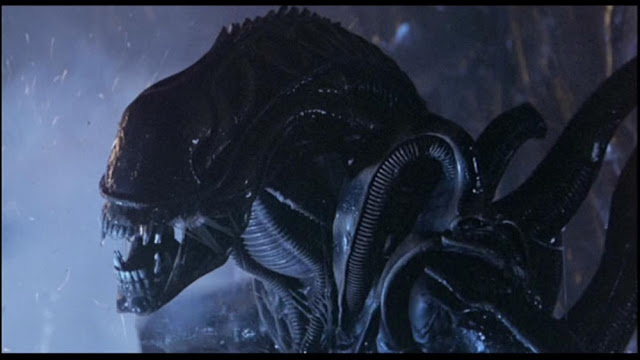"Game over, man!" - Private Hudson, Aliens
The sequel to Ridley Scott's 1979's Alien, Director James Cameron’s Aliens hit theatres in 1986, thrilling with special effects, intense action scenes, and loaded with meaning. Aliens was a box office hit, earning more than $130 million and cementing the Alien franchise (mostly a good thing, though I could have done without Alien vs. Predator).
Sigourney Weaver was back in action as Ripley, but this time her sense of isolation as the last survivor on a spaceship, hunted by a single killer alien was replaced by a different kind of vulnerability as scores of aliens hunt her.
But just as the alien is no longer solo. Ripley has company. She takes on the role of a surrogate mother to a little girl as a military squad plays the masculine role of protector.
Alien 2 wasn't just a blockbuster action film. It makes a serious critique of the military-industrial complex, explores masculinity, and presents anxieties of childbearing with concomitant body horror. But Aliens is a pure joy to watch. By any standard, it's one of the greatest science fiction films.
We’ll explore all these elements, but let’s turn to the military-industrial complex as it relates to Aliens first.

















